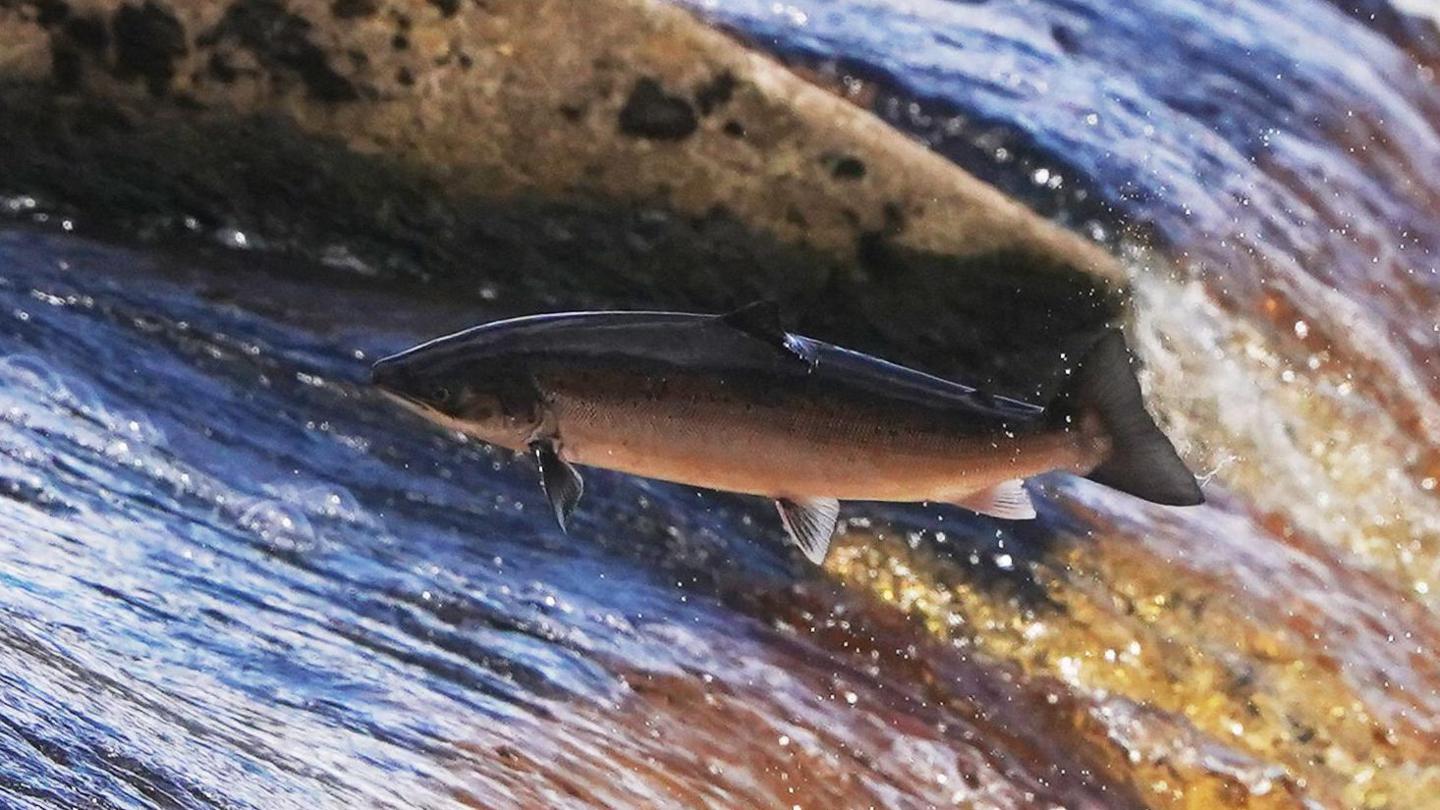'Disappointing' decline in salmon migration
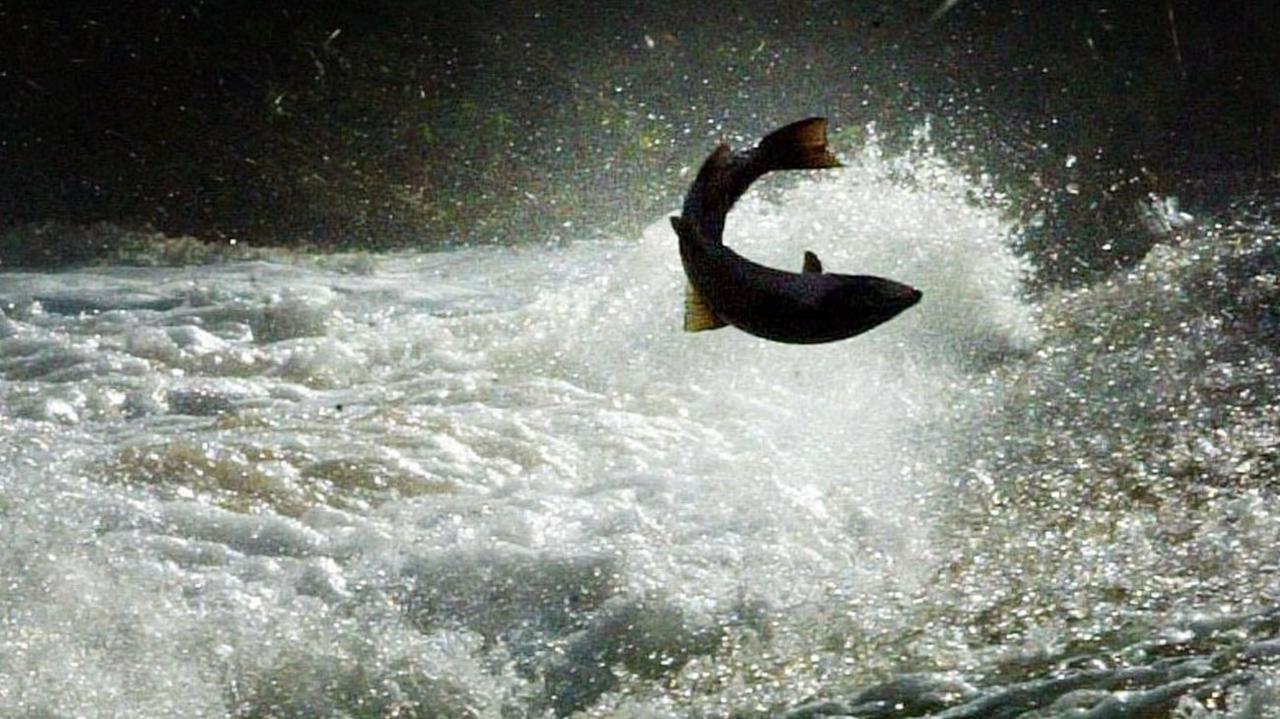
The number of salmon taking on the journey up the River Ribble has fallen due to pressures on the fish, and their habitat
- Published
There has been a "disappointing" drop in the number of salmon migrating upstream to spawn in the North West, according to the Ribble Rivers Trust.
The Clitheroe-based charity said since 2012 the number has fallen by 60% from around 1,000 to 400, as a likely result of climate change.
Jack Spees, the CEO of the Ribble Rivers Trust, said: "It's been really disappointing, for me personally when I came there were between 5,000 and 10,000 salmon swimming up the river every year."
It comes as crowds gathered at Stainforth Force an 8ft (2.5m) waterfall, to see the salmon, which had made their way from the sea, trying to jump upstream.
Mr Spees said: "The decline is ongoing, so we've been working really hard as a trust to address all the issues and get that decline reversed."
"As human beings we've been degrading our rivers for a few hundred years so it's going to take time to us a while to get them back to their prime condition.
"But we're hoping in the next five to 10 years we'll really start to see that decline bottoming out and starting to increase again."
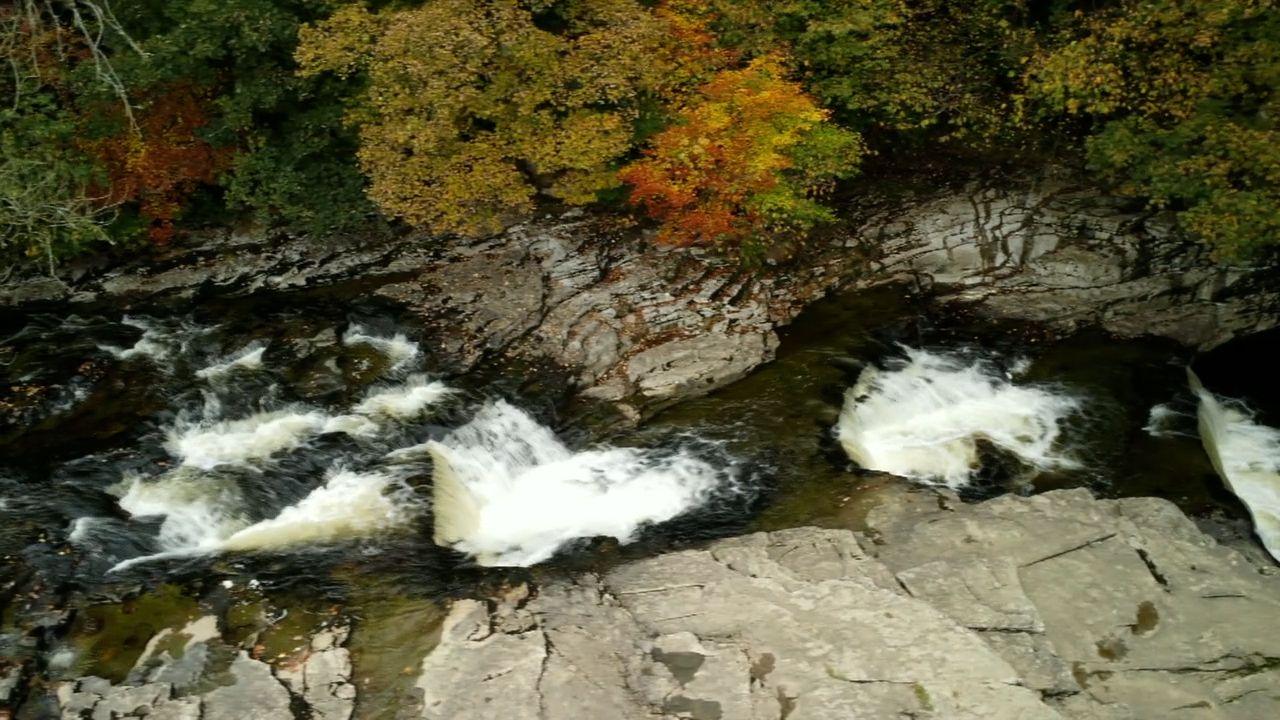
The waterfall at Stainforth Force
Mr Spees began working at Ribble Rivers Trust in 2008 as a fisheries scientist and remained inspired by the species: "This is incredible, they've swum over 3,000 miles at sea.
"They've now reached this natural waterfall and they're desperately trying to get to the really good spawning habitat, where there's lovely clean gravel where they can dig their nests."
As soon as salmon leave the estuary, they swim up the coast into the North Sea towards Greenland to find better food resources.
They then use their sense of smell and gravitational field to travel back to where they were spawned.
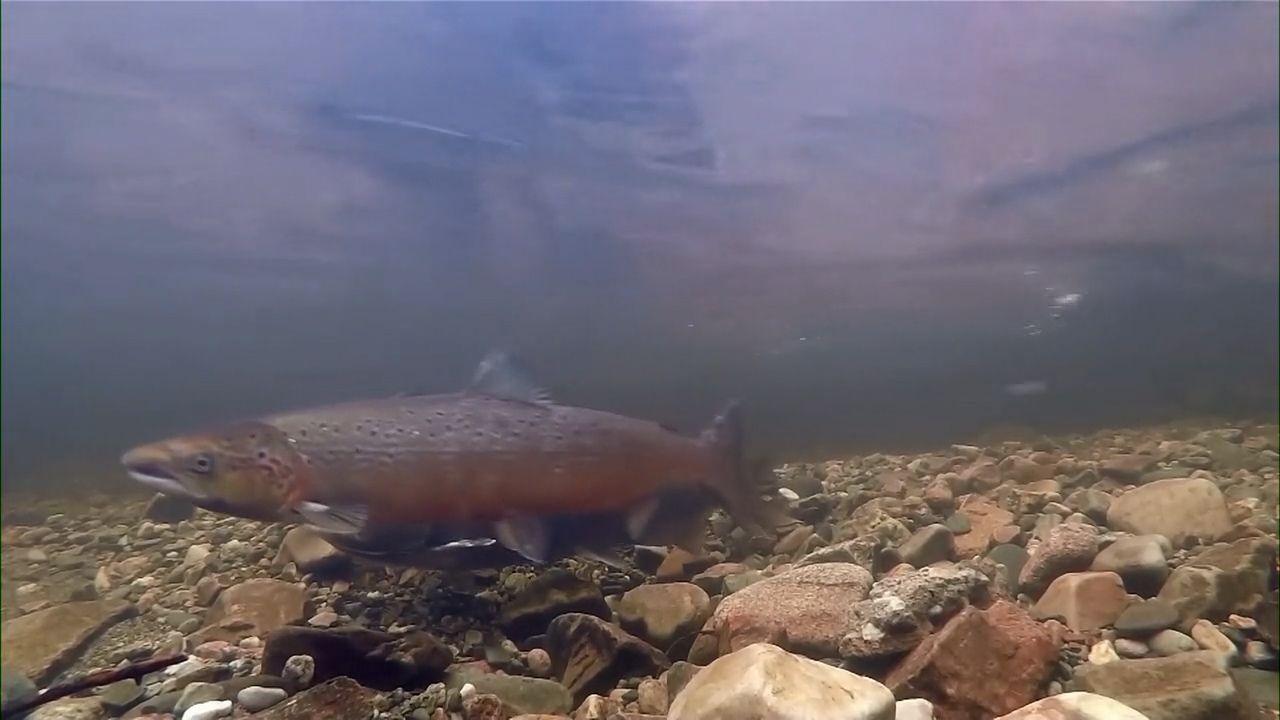
It is an upstream struggle for the salmon
The salmon face many threats, such as predators including birds, otters and anglers.
They stop eating to save food in the river for their juveniles and take on the upstream battle to get home.
Jack Spees said: "They'll get battered and scraped, they might pick up infections. By the time they get here they've really gone through the mill and they've still got this incredible obstacle to overcome."
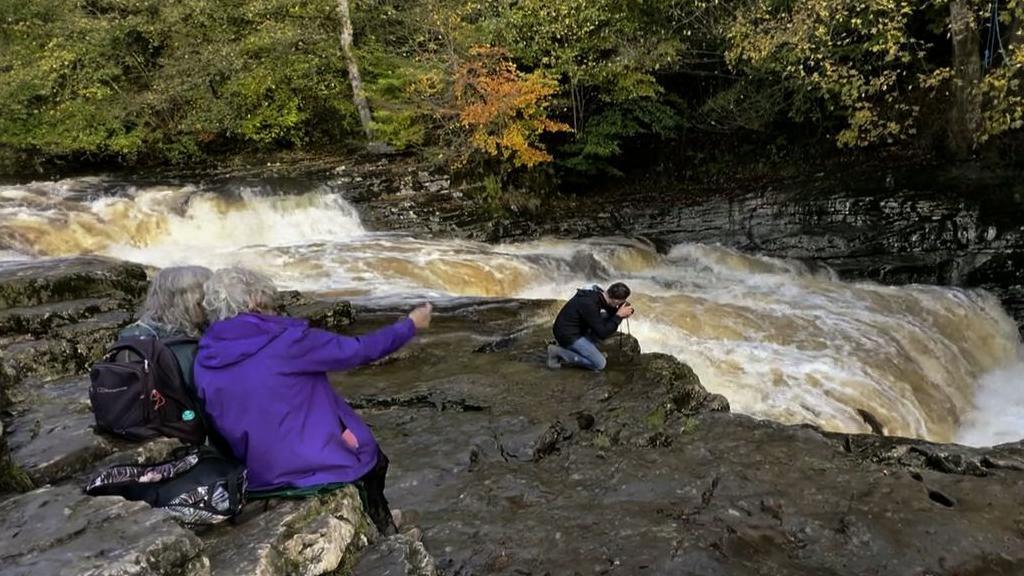
Jack Spees gets a close up shot of the salmon leaping
Charlotte Ireland Pope from the Ribble Rivers Trust said: "Since 2012 numbers have declined quite steadily and quite rapidly.
"We think it's likely that climate change is a major contributing factor, as severe flooding and summer droughts have also increased significantly over the same period.
She added that "changes at sea" could affect the salmon's life cycle.
The cold water helps to protect them against infection and regulates their metabolism, but this has been warming up.
Increased flooding also washes their nests, called redds, away said the charity.
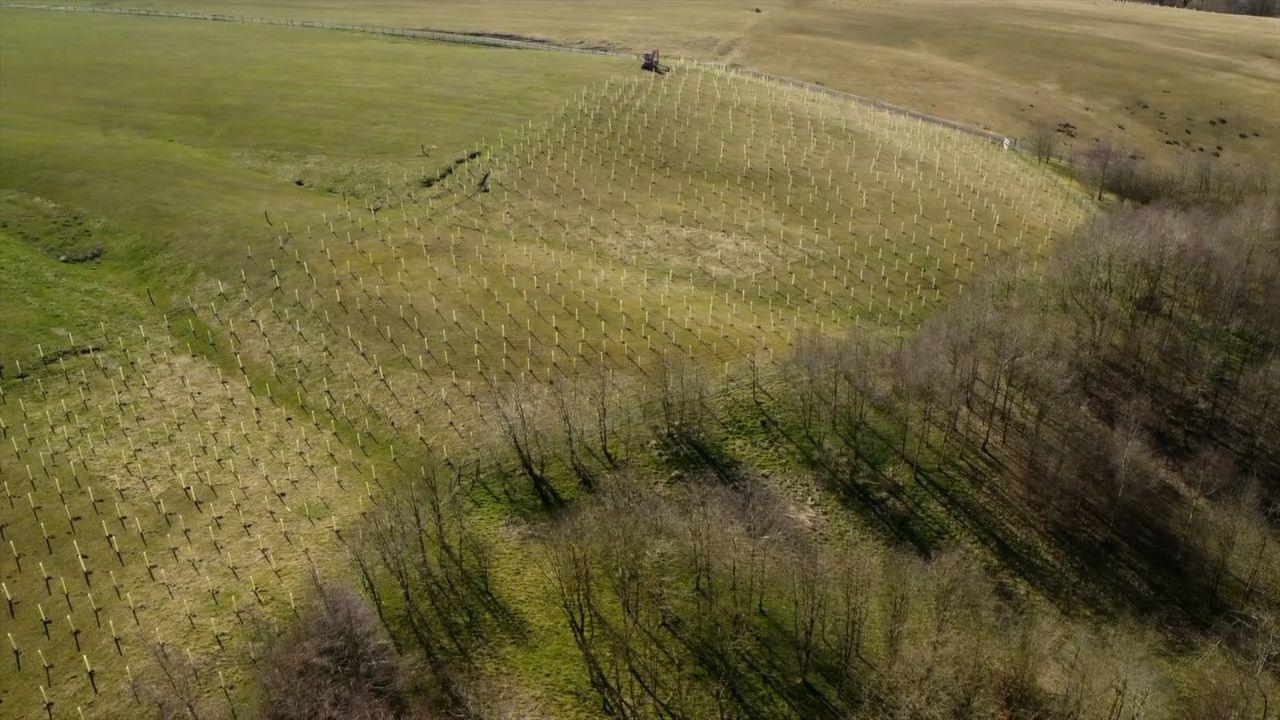
The Ribble Rivers Trust has been creating new woodland to help the salmon's habitat.
The Ribble Rivers Trust is working to protect their habitat by planting woodland to help protect against flooding.
Other measures included removing artificial barriers like weirs or introducing a 'fish pass', which is similar to a ladder, for the fish to swim over.
The Trust has also been working with farmers to reduce the amount of nutrients put into the river to improve water quality.
Get in touch
Tell us which stories we should cover in Lancashire
Listen to the best of BBC Radio Lancashire on Sounds and follow BBC Lancashire on Facebook, external, X, external and Instagram, external. You can also send story ideas via Whatsapp to 0808 100 2230.
Related topics
- Published2 days ago
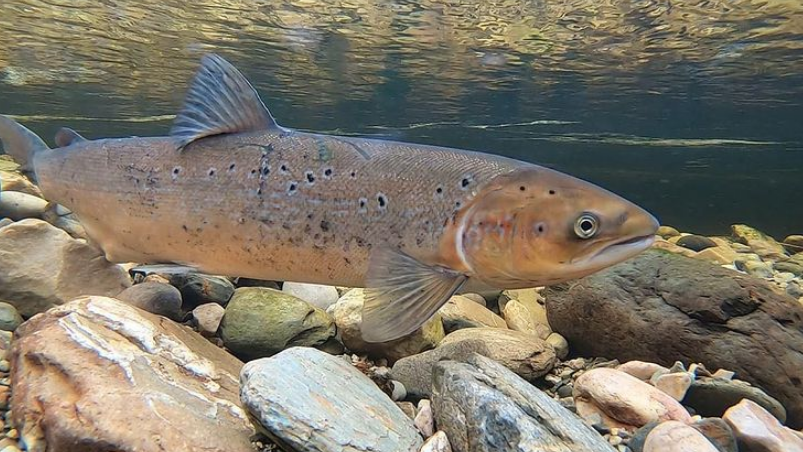
- Published13 November
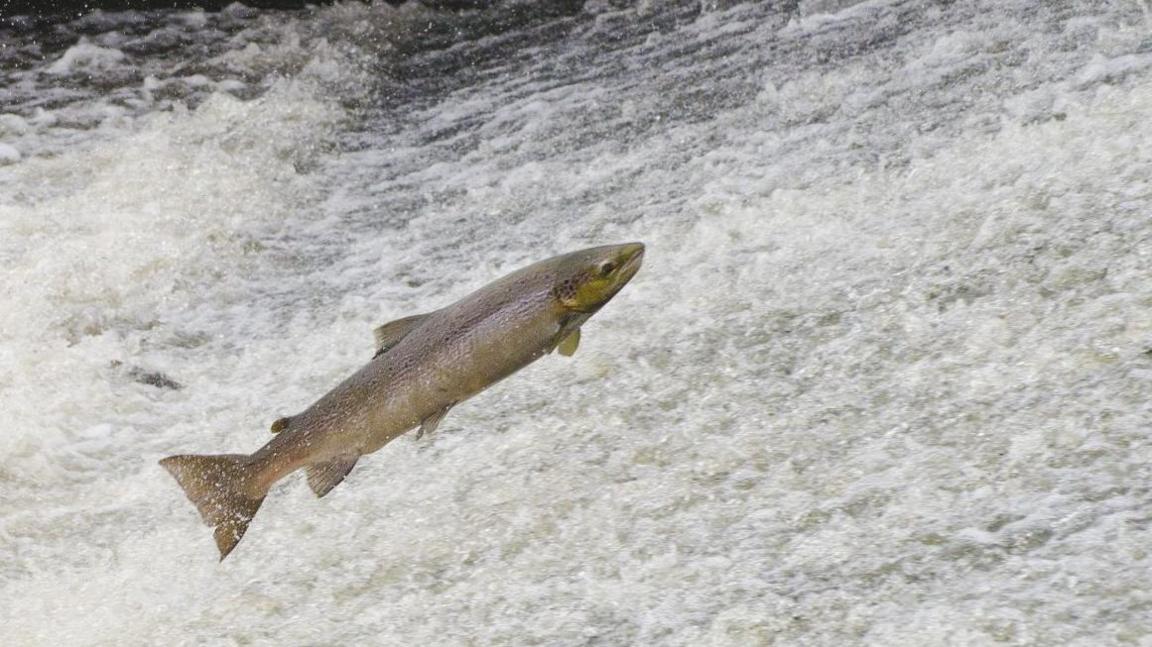
- Published4 August
